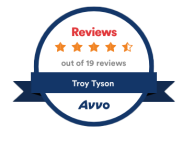The first thing to do is show up on time. This is not merely an act of courtesy, but it also ensures that you will receive the maximum amount of face time for your consultation. Attorneys tend to be very busy people, and chances are that your scheduled consultation will be immediately followed by another important appointment or task for the attorney. Therefore, showing up 10-15 minutes late for your appointment could cut significant chunks of time – and, consequently, information – out of your consultation.
Second, come armed with facts. No one knows your case better than you do. Remember that you will be conveying a narrative of your situation to someone who is hearing about the incidents in question and the people involved for the first time. All of this will be brand new to the attorney you are speaking with. Therefore, a well-organized narrative which is chronologically ordered and outlines the key points and people involved will be extremely helpful to both you and the attorney.
Additionally, something of critical importance is to keep your emotions out of the narrative as much as possible. Most attorneys understand that legal disputes such as divorce, child custody, evictions, business disagreements, etc. can be extremely stressful and emotionally draining. It is perfectly understandable that you would be highly charged about the situation you are presenting to an attorney at your consultation, and that you would convey those feelings. However, investing too much emotion into your consultation usually does more harm than good, as you will probably end up spending more time talking about the emotional aspects of a case than the legal issues. While the attorney you are meeting with will likely have a great deal of sympathy for the personal and emotional challenges created by your legal dilemma, he or she can, for the most part, only help you in resolving the legal issues, not the personal ones. Therefore, for your own sake, keep the narrative straightforward and try to keep your personal feelings out of it, at least for the duration of your consultation.
Third, set realistic expectations. Along with being highly emotional about legal issues, it is common for many potential clients to have unrealistic expectations about the strength of their cases or the probability of their outcomes. That is, many prospective clients believe their cases to be airtight and expect home runs in court. The truth is that the American legal system is very complex, slow, and nuanced. It is quite rare that cases are as “airtight” as clients believe them to be. In reality, there are usually holes or vulnerabilities in even the best of cases. “Home runs” in the legal world are also exceedingly rare. Whether a matter is settled or taken to trial, the path is usually a challenging one, and it is common that neither party in a case – winner or loser – walks away with everything they want.
That is not to say that strong cases can’t be successfully litigated or settled in a way that is satisfactory to the client. Attorneys can, of course, make positive things happen, and that is why people hire them. Rather, what is important to note here is that clients must set their expectations realistically to account for the variables that come with any case: the human element, the challenges, delays, and unpredictability – these are all a part of the legal system. Clients who take this to heart are likely to get more out of their consultation.
Finally, be prepared to listen. While your side of the story is extremely important, and the attorney will be anxious to hear the details of your case, the primary goal of your consultation is to glean knowledge and guidance that will help you in making prudent decisions on how to proceed. You can only obtain the attorney’s insights into your case by sitting back and listening carefully. Often, a prospective client goes into a consultation with a predetermined outcome in mind, or believing that they have already considered all aspects of their case. While there is nothing wrong with thinking through your case in advance and outlining certain key objectives, understand that an attorney may have a viewpoint that is different, or in some cases, even contrary, to what you initially anticipated. Be prepared to take in everything the attorney has to say about the case, and actively listen by taking notes, asking relevant questions, etc. Only by doing this can you get the most out of your consultation.
Seeking a consultation from an experienced attorney is a wise first step if you have a legal challenge. Going into the process prepared, and with realistic expectations, will aid you greatly in getting the most out of your meeting. Contact us if you have a legal issue you would like to discuss or if you have any additional questions.
NOTE
All legal references are made with respect to Indiana law. Please check the laws of your local jurisdiction if you live in another state.
The articles in this blog are for informational purposes only. No attorney-client relationship is established through the publication of these articles.







